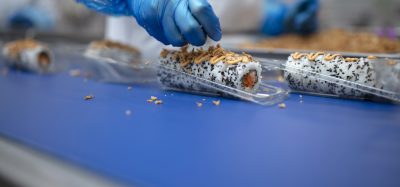Leading the charge against food crime
- Like
- Digg
- Del
- Tumblr
- VKontakte
- Buffer
- Love This
- Odnoklassniki
- Meneame
- Blogger
- Amazon
- Yahoo Mail
- Gmail
- AOL
- Newsvine
- HackerNews
- Evernote
- MySpace
- Mail.ru
- Viadeo
- Line
- Comments
- Yummly
- SMS
- Viber
- Telegram
- Subscribe
- Skype
- Facebook Messenger
- Kakao
- LiveJournal
- Yammer
- Edgar
- Fintel
- Mix
- Instapaper
- Copy Link
Posted: 31 August 2023 | Ron McNaughton | No comments yet
From fake alcohol to potentially fatal substances sold as diet pills; Ron McNaughton, Head of Food Standards Scotland’s Food Crime and Incidents Unit, explains how it is tackling food crime.


In 2013 Europe witnessed one of its most infamous cases of food crime when a huge amount of products, including burgers, were discovered to contain horse meat. But what is food crime and how are we trying to keep consumers safe?
Food crime is defined as any deliberate manipulation, substitution, mislabelling or instance of fraud in relation to food. Counterfeit and substandard food and drink can make its way into the supply chain at any stage – from wholesale domestic and international distribution networks to the local corner shop – and the increase of sales online is exacerbating the threat that food crime poses to the public.


McNaughton observes that food crime is unlike more obvious criminality as it “deceives customers and may put consumers’ health at risk”
Unlike more obvious criminality, food crime deceives customers and may put consumers’ health at risk. Food crime affects all types of products and having access to the global marketplace means that we need to be more vigilant in the fight against this type of criminality.
Keeping the supply chain safe
The Scottish Food Crime and Incidents Unit (SFCIU) is the incidents, investigations and intelligence gathering arm of Food Standards Scotland (FSS) and leads the charge against food crime. It has dedicated intelligence, analytical and investigation teams who analyse, develop and action information received from a wide variety of areas, including members of the public, food business operators, industry whistle-blowers and other partner agencies.
In Scotland, we work with partners such as Police Scotland and local authorities to develop intelligence-led operations against criminals who seek to make profits from food crime that can potentially put the health of consumers at risk.
While food crime is financially motivated and can vary from low level criminality to complex fraud across supply chains, it can have serious and deadly consequences.
Since FSS’s establishment in 2015, several food crime cases have been reported to the Procurator Fiscal following SFCIU investigations, ranging from fake Scottish tea sold to luxury hotels to a powdered chemical sold to people wanting to lose weight rapidly.
Early this year, in a landmark case for FSS, Jamie George (32) was sentenced at Stirling Sheriff Court to 37 months in jail for distributing 2,4-dinitrophenol (DNP), a highly toxic industrial chemical.DNP has tragically been responsible for at least 33 deaths in the UK since 2007 and is not safe for human consumption.
FSS staff, plus police officers and Falkirk Council employees, recovered 5kg of DNP, 120 filled capsules and 10,000 empty capsules as part of the investigation. His sentencing came as a result of a joint investigation between FSS’s Scottish Food Crime and Incidents Unit (SFCIU), Police Scotland and Falkirk Council’s Environmental Health department.
The case is the first of its kind involving DNP to be prosecuted in Scotland and is the first major criminal investigation to lead to a conviction for the SFCIU. The sentencing sends a clear message that there are consequences for those individuals who are prepared to put peoples’ lives at risk in order to profit financially from food crime.
The three lines of defence
As part of tackling food crime there are three key lines of defence that can help ensure that food is both safe and authentic. These are food businesses and industry; regulators and law enforcement; and consumers.
One of the most common questions I’m asked is: “How can people spot food crime?”. My advice is simple: if something seems too good to be true – significantly reduced in price especially in the current climate – or promises unrealistic results, then the chances are it probably isn’t genuine.
FSS recently launched its Food Crime Risk Profiling Tool, an online programme which allows companies to assess their vulnerabilities to criminality.
Using the tool allows businesses to assess themselves against a series of statements on topics, such as how they source materials and their supply methods, before being given an individual report at the end which will highlight areas of good practice as well including specific guidance on areas they may wish to improve on.
To support businesses through this process, FSS will be holding several free online workshops later this year to help develop opportunities to increase authenticity and improve food crime resilience – those who sign up to the tool will receive an invite to the workshops.
Prevention is the key to winning the battle against food crime. We felt it was important to support the food industry through crime prevention in order to protect businesses and, ultimately, consumers.
And while we look to better support industry, law enforcement agencies cannot tackle food crime without the support of the public and particularly those who work in the food and drink industry. FSS and Crimestoppers launched the free Scottish Food Crime Hotline in 2016 to give members of the public and industry a dedicated place to report anonymously any suspicions of food crime. The confidential hotline number (08000287926) is operational 24 hours a day, seven days a week and you can also make a report anytime via Food Standards Scotland’s website.
If you found this article informative and engaging, then we have a special invitation for you. Join us at our upcoming event Food Integrity Global, where we dive deeper into the topics discussed here, providing a platform for stimulating conversations and networking opportunities. Experience first-hand the excitement of being part of a dynamic food & bev community passionate about shaping the future of food integrity, safety, and sustainability.
Mark your calendar and be prepared to be inspired. We look forward to welcoming you to an unforgettable event that will leave you with valuable insights and a renewed enthusiasm for the subjects that matter most to you.
Food Integrity Global
17-18 October 2023
Topics covered include: Food safety, Diversity, Food fraud, Sustainability, Microbiology and Labelling
About the author


Ron was initially a consultant for Food Standards Scotland and became the Head of the Scottish Food Crime & Incidents Unit in 2016 after being asked to build a food crime capability by the Chief Executive.
A former Senior Police Officer in Scotland, he retired from the Police in 2015, after 30 years’ service. During this period he served in a number of operational policing roles.
For the last 5 years of his police service, he was specifically involved in leading the investigation into serious and organised crime as Force Authorising Officer and Head of Intelligence for Tayside Police. In that role he was responsible for all force covert activity. Latterly Ron worked within the Police Service of Scotland’s intelligence function and performed the role of Intelligence Commander for the Ryder Cup at Gleneagles.
Related topics
Food Fraud, Food Security, Health & Nutrition, Outbreaks & product recalls, Quality analysis & quality control (QA/QC), Regulation & Legislation, retail, Trade & Economy









